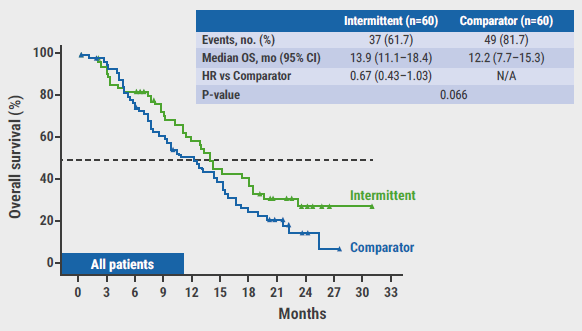An analysis of more than eight years of follow-up data from 3,449 long-term breast-cancer survivors revealed that those who consumed nuts regularly had higher rates of overall survival and disease-free survival than those who eschewed nuts, researchers report in the International Journal of Cancer.
"Nuts contain many nutrients and phytochemicals that have anti-oxidative, anti-inflammatory, and tumor growth inhibitory effects," said study coauthor Dr. Xiao-Ou Shu of the Vanderbilt University Medical Center in Nashville, Tennessee.
While the study found an association, it did not prove cause-and-effect, Dr. Shu told Reuters Health by email. "Our finding was based on an observational study," he said. "The causality of the association needs to be confirmed by clinical trials."
To take a closer look at the potential impact of nut consumption on risk of recurrence among breast cancer survivors, Dr. Shu and his colleagues turned to data from the Shanghai Breast Cancer Survival Study. The researchers focused on patients who survived more than five years after their cancer diagnosis and had completed a detailed dietary assessment during a follow-up interview at the five-year mark.
The researchers excluded patients who had in situ breast cancer and those who had a consumption of any type of nuts exceeding 500 g/d, which left 3,449 patients to be included in the analysis.
As part of the dietary assessment, patients were asked how frequently they consumed nuts. They were then categorized into three groups by the amount of nuts consumed: none, median, and greater than median.
The majority of participants in both the consumer and non-consumer groups were diagnosed with estrogen receptor (ER)-positive or progesterone receptor (PR)-positive cancers.
Nut consumers were more likely than their nut-eschewing counterparts to be diagnosed at Stage 1, to be at a younger age at diagnosis, to have a lower BMI, to have a higher total energy intake, higher CHFP-2007 score and a higher soy food intake. Further, nut consumers were more likely to have a higher education, higher personal income, a higher physical activity level and to have received immunotherapy.
During follow-up there were 374 deaths from any cause, including 252 deaths from breast cancer. Ten years post diagnosis, compared with those who avoided nuts, nut consumers had a higher overall survival (93.7% vs. 89.0%, P=0.003) and a higher disease-free survival (94.1% vs. 86.2%, P<0.001).
After accounting for age at diagnosis, total energy intake, income, education, disease stage, ER status, PR status, menopause age, physical activity, CHFP-2007 score, soy-food intake, BMI and weight change, ever nut consumption was associated with significantly better disease from survival (hazard ratio, 0.52), but a nonsignificantly improved overall survival.
When the researchers analyzed their data by amount of nuts consumed, they found a dose-response relationship for overall survival and disease free survival. Compared with those who eschewed nuts, patients who consumed more nuts than the median (17.32 g/wk) and equal to or less than the median had a respective 52% and 45% lower risk of cancer recurrence, metastasis or breast cancer-specific death, with a linear dose response relationship.
"Nuts are nutrient dense foods rich in healthy unsaturated fats, fiber, protein, vitamins, minerals and antioxidants," said Kelly Hogan, nutrition and wellness manager at the Dubin Breast Center at Mount Sinai Hospital.
"The findings of this study are intriguing in regards to possible growth-inhibitory effects nuts may have on breast cancer cells, and support past research (PREDIMED) on the benefits of healthy fats (olive oil and nuts) in women at risk for breast cancer," Hogan, who was not involved in the study, told Reuters Health by email. "These findings speak more largely to the benefits of consuming a varied, plant-forward diet rich in healthy fats like nuts in women who currently have breast cancer."
"A generally low fat diet has often been recommended for breast cancer survivors in the past, and the plethora of recent research like this on the benefits of healthy, plant-based fats like nuts in the breast-cancer population presents an important differentiation from animal-based saturated fats," Hogan said. "Helping patients understand the difference between these two types of fats, and the benefits of consuming plant-based unsaturated fats while limiting animal fats, is important as part of a thorough nutrition plan for breast-cancer survivors."
The study had no commercial funding, and the authors report no conflicts of interest.
SOURCE: https://bit.ly/3B9zsBS International Journal of Cancer, online October 19, 2021.
By Linda Carroll
Posted on
Previous Article
« Change in neuropsychiatric status in teens may signal para- or post-COVID inflammatory syndrome Next Article
Vaccines weaker than expected in multiple myeloma patients »
« Change in neuropsychiatric status in teens may signal para- or post-COVID inflammatory syndrome Next Article
Vaccines weaker than expected in multiple myeloma patients »
Related Articles

August 5, 2022
Encouraging results of relacorilant in ovarian cancer
© 2024 Medicom Medical Publishers. All rights reserved. Terms and Conditions | Privacy Policy

